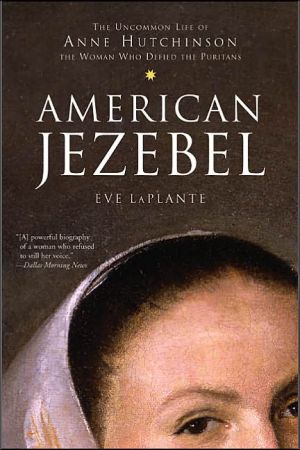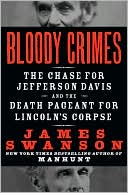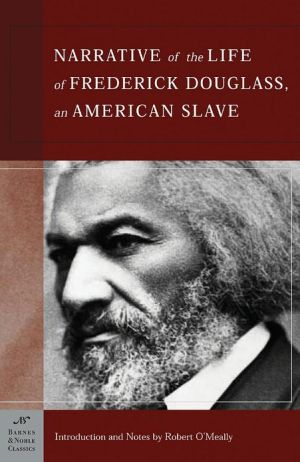American Jezebel: The Uncommon Life of Anne Hutchinson, the Woman Who Defied the Puritans
In 1637, Anne Hutchinson, a forty-six-year-old midwife who was pregnant with her sixteenth child, stood before forty male judges of the Massachusetts General Court, charged with heresy and sedition. In a time when women could not vote, hold public office, or teach outside the home, the charismatic Hutchinson wielded remarkable political power. Her unconventional ideas had attracted a following of prominent citizens eager for social reform. Hutchinson defended herself brilliantly, but the...
Search in google:
The Dramatic Story of America's Founding Mother Publishers Weekly LaPlante, an 11th-generation granddaughter of Hutchinson, provides a fast-paced and elegant account of Hutchinson's life and work, including the reasons that Hutchinson's teachings threatened the fabric of Puritan theology. By the time she was born, her father, Francis Marbury, had already been in and out of jail for challenging the religious authority of the Anglican priests in England. His continuing nonconformity, according to LaPlante, had a lasting impact on Hutchinson's own views of religious authority. Hutchinson also learned from the Reverend John Cotton that God's revelation to individuals occurred mystically as a kind of inner light and did not require a formal religious setting. After she moved to the colonies with her husband, William Hutchinson, she began to teach that men and women could attain salvation not through performing religious works but through this inward grace. The Puritans, who emphasized that the covenant of works was the only guarantee of salvation, charged her with antinomianism (an attack against the law of God) and with violating God's commands that a woman should not teach. LaPlante offers a stimulating account of Hutchinson's eloquent self-defense at her trial. Knowing that the magistrates had no religious or political grounds to convict her, since a woman was not a subject of the law, Hutchinson stymied their questioning. LaPlante's first-rate biography offers glimpses into the life and teachings of a much-neglected figure in early American religious history. (Mar.) Copyright 2004 Reed Business Information.
\ Christian Science Monitor"[F]ascinating...engaging...What LaPlante has reconstructed here supplies a welcome new podium for a brave Puritan theologian...."\ \ \ \ \ Booklist"[A] well-researched account...LaPlante paints a fascinating portrait...[and] deftly depicts the gritty world of colonial New England."\ \ \ Providence Journal Book Review"[Hutchinson’s] crime and her trial are skillfully recounted....[a] satisfying history."\ \ \ \ \ The New York Sun"[LaPlante] makes her kinswoman’s fate into a riveting drama...an enthralling narrative."\ \ \ \ \ Boston Globe"A powerful and fascinating book that deserves wide reading."\ \ \ \ \ BookPage"[Hutcinson’s] legacy lives on, and American Jezebel comes as a timely reminder of the causes she held dear:"\ \ \ \ \ Dallas Morning News"[A] powerful biography of a woman who refused to still her voice."\ \ \ \ \ Minneapolis Star Tribune"The most full-scale biography of Hutchinson to date, and a readable, useful account of the challenges women faced...diligently researched and well-crafted."\ \ \ \ \ Howard Zinn"What true heroes can I tell my students about? …read LaPlante’s biography to make [Hutchinson] and her courage come alive."\ \ \ \ \ Edwin Gaustad"...charming exploration of the life and times of Anne Hutchinson....A personal and appreciative tribute."\ \ \ \ \ Peter J. Gomes"[t]he most significant woman in pre-Revolutionary America...rescued from obscurity and re-introduced to 21st Century America."\ \ \ \ \ Leigh E. Schmidt"[a] spirited biography of Anne Hutchinson… LaPlante’s rendering suggests how deeply resonant that history remains."\ \ \ \ \ Michael Dukakis"This book is New England history at its best....it carries with it a message for today as well."."\ \ \ \ \ Susan Quinn"A vivid account, full of surprising twists and turns...richly documented...."\ \ \ \ \ Carol Gilligan"American Jezebel is stunning book, exquisitely written, it fills in a crucial piece of American history."\ \ \ \ \ Laura Miller""Remarkably successful... traces the vein of an ongoing ambivalence about powerful public women in America... particularly good on the sexual mores of the Puritans..."\ \ \ \ \ Nick Gillespie"A new biography well worth reading... Anne Hutchinson is among the most-neglected, most important figures in United States history."\ \ \ \ \ Dallas Morning News“[A] powerful biography of a woman who refused to still her voice.”\ \ \ \ \ Booklist“[A] well-researched account...LaPlante paints a fascinating portrait...[and] deftly depicts the gritty world of colonial New England.”\ \ \ \ \ Boston Globe“A powerful and fascinating book that deserves wide reading.”\ \ \ \ \ Minneapolis Star Tribune“The most full-scale biography of Hutchinson to date, and a readable, useful account of the challenges women faced...diligently researched and well-crafted.”\ \ \ \ \ BookPage“[Hutcinson’s] legacy lives on, and American Jezebel comes as a timely reminder of the causes she held dear:”\ \ \ \ \ Christian Science Monitor“[F]ascinating...engaging...What LaPlante has reconstructed here supplies a welcome new podium for a brave Puritan theologian....”\ \ \ \ \ The New York Sun“[LaPlante] makes her kinswoman’s fate into a riveting drama...an enthralling narrative.”\ \ \ \ \ Providence Journal Book Review“[Hutchinson’s] crime and her trial are skillfully recounted....[a] satisfying history.”\ \ \ \ \ Publishers WeeklyLaPlante, an 11th-generation granddaughter of Hutchinson, provides a fast-paced and elegant account of Hutchinson's life and work, including the reasons that Hutchinson's teachings threatened the fabric of Puritan theology. By the time she was born, her father, Francis Marbury, had already been in and out of jail for challenging the religious authority of the Anglican priests in England. His continuing nonconformity, according to LaPlante, had a lasting impact on Hutchinson's own views of religious authority. Hutchinson also learned from the Reverend John Cotton that God's revelation to individuals occurred mystically as a kind of inner light and did not require a formal religious setting. After she moved to the colonies with her husband, William Hutchinson, she began to teach that men and women could attain salvation not through performing religious works but through this inward grace. The Puritans, who emphasized that the covenant of works was the only guarantee of salvation, charged her with antinomianism (an attack against the law of God) and with violating God's commands that a woman should not teach. LaPlante offers a stimulating account of Hutchinson's eloquent self-defense at her trial. Knowing that the magistrates had no religious or political grounds to convict her, since a woman was not a subject of the law, Hutchinson stymied their questioning. LaPlante's first-rate biography offers glimpses into the life and teachings of a much-neglected figure in early American religious history. (Mar.) Copyright 2004 Reed Business Information.\ \ \ \ \ Library JournalThe tale of Anne Hutchinson, the 17th-century New England religious dissenter who defied the Puritan theocracy and later founded Rhode Island, is told once again in this biography by one of her direct descendants. LaPlante offers an admiring portrait of Hutchinson, based largely on David Hall's The Antinomian Controversy, 1636-1638: A Documentary History, which examines the primary text of the documents pertaining to Hutchinson's trials. LaPlante claims that the Hutchinson controversy "set the stage for our modern concepts of religious freedom, gender equality, and civil rights." Such a claim is debatable, but there is no doubt that Hutchinson was a remarkable woman who was ahead of her time. This biography covers her life as comprehensively as possible, given the source material available, and includes a chronology, genealogy, and bibliography as well as a travelog that traces Hutchinson's life in New England. Since so much has been written about Hutchinson, this book is recommended mainly for comprehensive collections; those libraries lacking a biography of this "American Jezebel" can safely purchase.-Cathy Carpenter, Georgia Inst. of Technology Lib., Atlanta Copyright 2004 Reed Business Information.\ \ \ \ \ Kirkus ReviewsAn attempt to place Anne Hutchinson (1591-1643) as an early feminist, after being expelled from Massachusetts Bay colony in 1638 on charges of heresy and sedition. LaPlante (Seized, 1993) begins with Hutchinson's trial before the Massachusetts General Court. Her real offenses, the author argues, consisted of building up a power base from which she challenged the colony's established church and government. LaPlante recapitulates Hutchinson's childhood in England, where her father capitulated to the power of the Anglican hierarchy. Anne, the second of 15 children, left England rather than bend to a church she considered corrupt. Convinced that she could distinguish those who were saved from those who were foredoomed, she stalked out of one Boston church rather than hear what she considered false doctrine. She began holding Bible discussion groups in her home, attended at first by other women, but increasingly by men. Convinced that her criticisms of the clergy would undermine the government, Governor John Winthrop brought her to trial. The outcome, LaPlante makes clear, was never in serious doubt. Arcane as the theological issues seem (her heresy was officially diagnosed as Antinomianism), the central issue was that a woman dared challenge the establishment. Banished from the colony, she moved to nearby Rhode Island, where she is today recognized as one of the founders of the state, as well as inspiration for its official policy of religious tolerance. Upon the death of her husband a few years later, she moved to upstate New York, where she and her large family perished in an Indian raid, having refused to arm themselves. LaPlante effectively details the intellectual climate in whichHutchinson flourished, and gives a vivid picture of 17th-century life in England and the colonies. Hutchinson's courage is beyond question, but LaPlante never manages to make her any more sympathetic than her Puritan opponents.\ \








